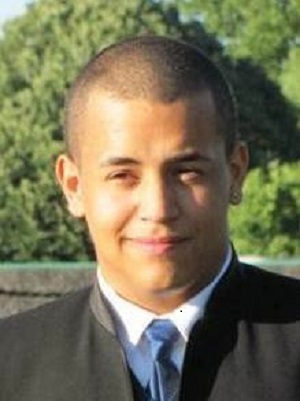A Qualitative Exploration of Adversarial Adaptability, Group Dynamics, and Cyber-Intrusion Chains

Abstract:
Conventional cyber attack management is reactive, which is ineffective in curbing sophisticated adversaries, especially Advanced Persistent Threats (APTs). There is an immediate need for proactive cyber-security measures that reflect the adaptive and dynamic nature of these adversaries. Using empirical evidence of observations and interviews conducted at the Industrial Control Systems Computer Emergency Response Team’s (ICS-CERTs) Red-Team/Blue-Team cyber-security training exercise held at Idaho National Laboratory (INL), this paper highlights the human aspects of cyber attacks, with a specific focus on adversarial intrusion chains, adaptability after attack disruptions, and group dynamics.
AUTHORS

Department of Criminal Justice Temple University Philadelphia, PA,
U.S.A.
Dr. Aunshul Rege is an Associate Professor in the Department of Criminal Justice at Temple University. Her National Science Foundation- supported research on cybercrime focuses on adversarial movement, decision-making and adaptation, adversarial organisational and operational dynamics, and anticipatory defence. She also investigates experiential learning in the areas of cyberattacks and cyber security—across all disciplines— emphasizing the relevance of human behaviour and the social sciences.

Department of Criminal Justice,Temple University
Philadelphia, PA, U.S.A.
Edward Parker is a first-year doctoral student in the Department of Criminal Justice at Temple University. He is currently working with his mentor—Dr. Aunshul Rege—on her National Science Foundation CAREER project. He has been an all-source intelligence analyst for the U.S. Army National Guard for four years. His research interests include critical infrastructure protection, adversarial decision-making and adaptability, and proactive cybersecurity.

Department of Criminal Justice
Temple University
Philadelphia, PA, U.S.A.
Brian Singer will earn his bachelor’s degree in Criminal Justice (Psychology minor) from Temple University in 2017. This past summer, he interned with OPS Security Group in its consulting and security/investigation sectors. He is currently working with Dr. Aunshul Rege on her National Science Foundation CAREER project. His research interests include cybercrime, national security, terroristic risk methodology, and causes of recidivism.

Department of Criminal Justice Temple University
Philadelphia, PA, U.S.A.
Nicholas Masceri is an undergraduate studying Criminal Justice at Temple University. He has participated in research with engineering students at Temple and at Idaho National Labs. He is currently working with Dr. Aunshul Rege on her National Science Foundation CPS project. He has interests in pursuing a career in ethical hacking or working for criminal justice agencies.
Published In
Journal of Information Warfare
The definitive publication for the best and latest research and analysis on information warfare, information operations, and cyber crime. Available in traditional hard copy or online.
Quick Links
Archive

